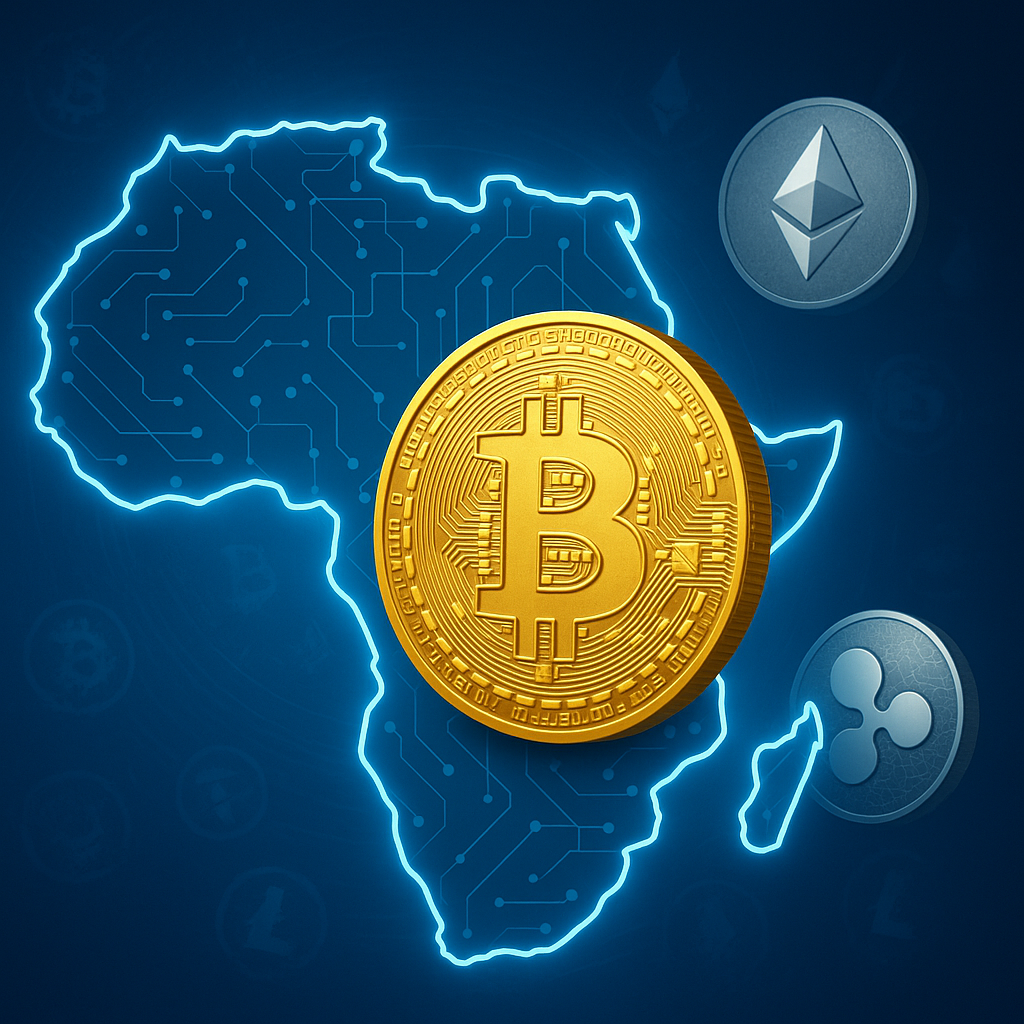If you’re reading this, you’ve probably been hearing all the buzz about Bitcoin, Ethereum, crypto trading, blockchain, and all those fancy tech words flying around Nigeria, Ghana, Kenya — everywhere in Africa these days.
Maybe you’ve even thought, “Is this crypto thing real? Should I jump in, or is it just another scam waiting to happen?”
Today, I want us to sit down together, like two friends having a deep conversation, and unpack what’s really going on with crypto in Africa — the good, the bad, and the future ahead.
Why Are Africans Rushing Into Crypto?
Let me tell you why this topic matters.
Africa, as a continent, is hungry — hungry for innovation, hungry for financial freedom, and hungry for solutions to long-standing problems like corruption, inflation, and access to basic financial services.
Did you know that over half of Sub-Saharan Africans don’t have a bank account?
That’s over 350 million people!
But here’s the interesting part:
Many of these same people have smartphones and internet access. This is where crypto comes in.
With cryptocurrencies, people can send money, receive payments, save funds, and invest — without needing a bank.
For many, Bitcoin has become like “digital gold,” especially in countries like Nigeria and Zimbabwe, where the local currencies (naira, Zimbabwean dollar) keep losing value like water leaking from a basket.
So, crypto gives Africans:
✅ Financial inclusion (even without a bank)
✅ A hedge against inflation (when local money keeps falling)
✅ Access to global markets (you can invest, trade, and work across borders)
It’s not just individuals; even African startups are using blockchain technology to build solutions for supply chain, agriculture, and healthcare.
But wait, it’s not all sweet because I have to be real with you.
Frankly, crypto in Africa is not just a rosy story. There are serious risks and challenges you must understand before you start dreaming of crypto millions.
1. Regulatory Uncertainty
Many African governments are still confused about what to do with crypto.
Nigeria’s central bank once banned banks from dealing in crypto, while other countries like South Africa are moving towards regulation. Without clear rules, investors and businesses can get caught in legal grey areas.
2. Fraud and Scams
Ah, this one pains me. We Africans know how to hustle, but sadly, scammers have flooded the crypto space with fake investment schemes, Ponzi setups, and fraudulent exchanges.
According to data, crypto-related scams in Africa are among the highest globally.
My advice? If someone promises you 50% returns every week — run!
3. Volatility
Crypto prices swing like a yo-yo. One day Bitcoin is $60,000; the next, it drops to $30,000. Imagine putting your life savings into that? Without proper knowledge, many people end up losing big.
4. Infrastructure Problems
Let’s be honest — reliable electricity, internet, and even smartphone access are still not available to everyone, especially in rural areas. Without these, using crypto becomes difficult.
5. Education Gaps
Many people don’t understand how crypto works, yet they rush in because of fear of missing out (FOMO). Without proper education, they become easy targets for bad actors.
You see, despite these challenges, I firmly believe the future of crypto in Africa is bright — but only if we handle it well.
Governments need to stop seeing crypto as the enemy and start working on proper regulations that protect consumers while encouraging innovation. We need local education programs to teach people how to use crypto wisely, not just as a get-rich-quick scheme.
Startups, tech hubs, and even universities can play a role here. And most importantly, you, my dear reader, need to do your own research. Don’t just follow the crowd. Understand the risks, educate yourself, and invest only what you can afford to lose.
Conclusion
Let me leave you with this:
Crypto is not magic. It’s not a guaranteed path to riches. But it’s also not just hype.
It’s a tool — a powerful one — that can change Africa’s financial future if we approach it with wisdom, patience, and caution.
So, before you put your money in, ask yourself:
-
Do I understand what I’m doing?
-
Am I following hype, or do I have a clear plan?
-
Have I secured my wallet and protected myself from scams?
If you can confidently answer these, then you’re already ahead of most people.
Africa’s crypto story is just beginning, and you have the chance to be part of it — but only if you walk wisely.
Stay informed. Stay smart. And remember, in the crypto world, slow and steady wins the race.
If you want me to break this down further — maybe you want tips on how to start safely or which platforms are trustworthy — just drop me a message. I’m happy to guide you further.
Are you currently investing or thinking of investing in crypto? Let me know


